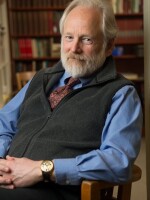Midsummer 1785, and the new nation was drowning in a sea of debt, disorganization, and political and social division. Fearful of a strong central government, Americans had created a confederation without a national executive or judiciary and requiring a two-thirds majority of the states for any collective action. Most liked it: such a weak government let them follow what the Declaration of Independence called “the pursuit of happiness” without interference.
But some believed that unrestrained pursuit of self-interest would cause Americans to lose that freedom. To their way of thinking, Americans had overthrown a monarchy only to risk descending into anarchy. In July 1785, George Washington expressed this anxiety in a letter to a friend.
Here are his words: “It is to be regretted, I confess, that Democratical States must always feel before they can see: it is this that makes their Governments slow – but the people will be right at last.”
When we think of the founding generation, we tend not to rank Washington up there with political thinkers like Jefferson, Madison, or Adams, but we should. Where they gave us aspirational ideals and a frame of government that made achieving those ideals possible, he offered a clear understanding of how that worked: that Americans would learn by experience. They’d have to feel the negative consequences of their behavior before seeing and doing the right thing to avoid disaster.
Washington couldn’t have imagined how often in our history centrifugal forces and internal divisions would nearly tear the country asunder only to have us come to our senses at the eleventh hour. What’s most extraordinary is his confidence that, when all was said and done, the people would get it right.
Historians know that the past isn’t necessarily much of a guide to the future, but these days I do find Washington’s words very much worth pondering. Although Americans are certainly feeling a lot these days, it’s not a given that such feeling will lead us to see our collective interests more clearly. And it’s anyone’s guess whether we retain the inner gyroscope needed to justify Washington’s confidence that we the people will come out right in the end.
But it’d be nice to think that, if Washington’s been right so far, we’ll be able to justify his confidence once again.





